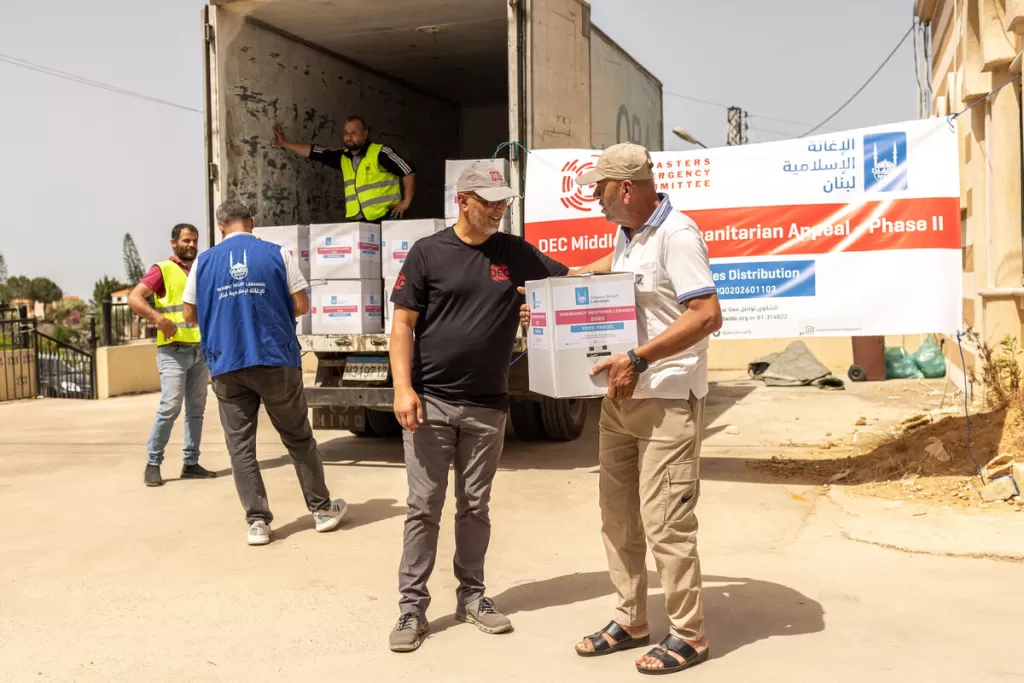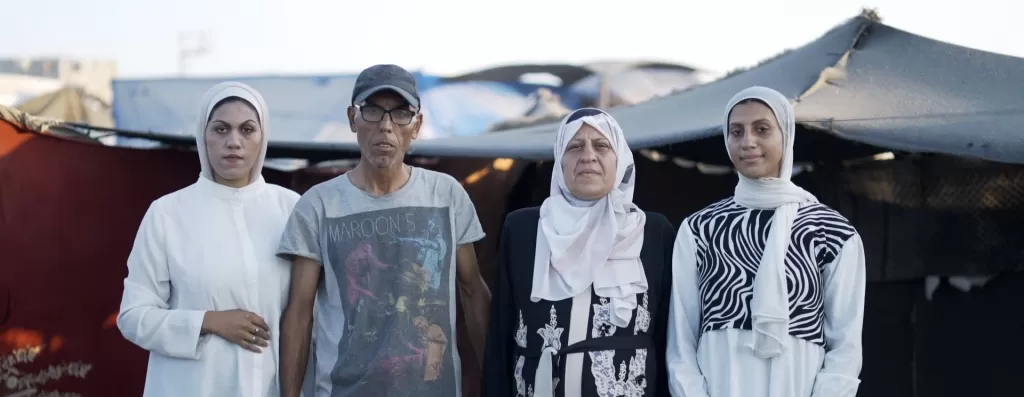Middle East
Humanitarian
Appeal
Middle East
Humanitarian Appeal
Conflict in the Middle East has devastated lives. Millions of people in Gaza, Lebanon, the West Bank and Syria urgently need shelter, food and basic supplies. Save lives. Donate now.
The scale of need is overwhelming

2.1 million
people - the entire population of Gaza - do not have enough to eat

1.9 million
people displaced in Gaza, and tens of thousands more in Lebanon
Gaza response: October '24 to April '25
Much of this work was made possible by the increase in aid delivered during the ceasefire agreement earlier this year, but the situation has deteriorated rapidly. A full-scale blockade on supplies entering Gaza for many weeks had a devastating impact on the work of DEC charities and their local partners, and many are no longer able to deliver lifesaving food, water and medicine.
The humanitarian needs are growing by the day. Increased and safe access for aid is urgently needed to save lives.
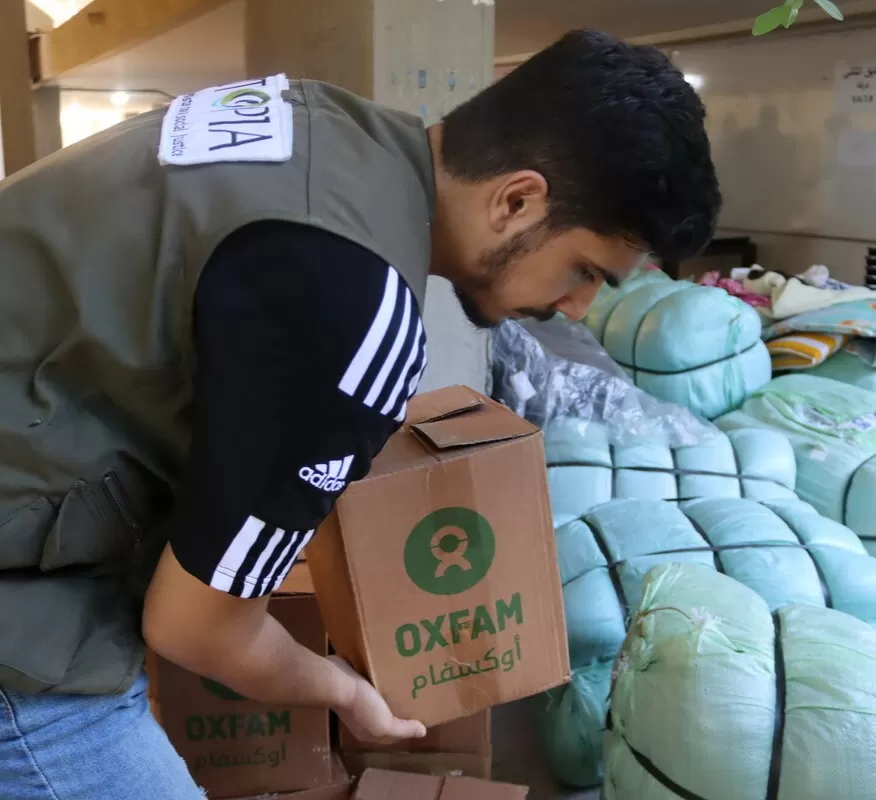
Mohammad, an aid worker from Oxfam’s local partner in north Lebanon distributes hygiene kits to displaced people at a collective shelter. Photo: Fatima Ghemrawi/Utopia for Social Justice/Oxfam
Where DEC charities are responding
Conflict in the Middle East has devastated lives across the region, and millions have fled their homes in search of safety.
DEC charities are responding in Gaza, Lebanon, the West Bank and Syria to meet urgent needs. They are constantly working with their local partners to navigate the challenges in delivering vital aid. Read more about where and how our charities are responding.
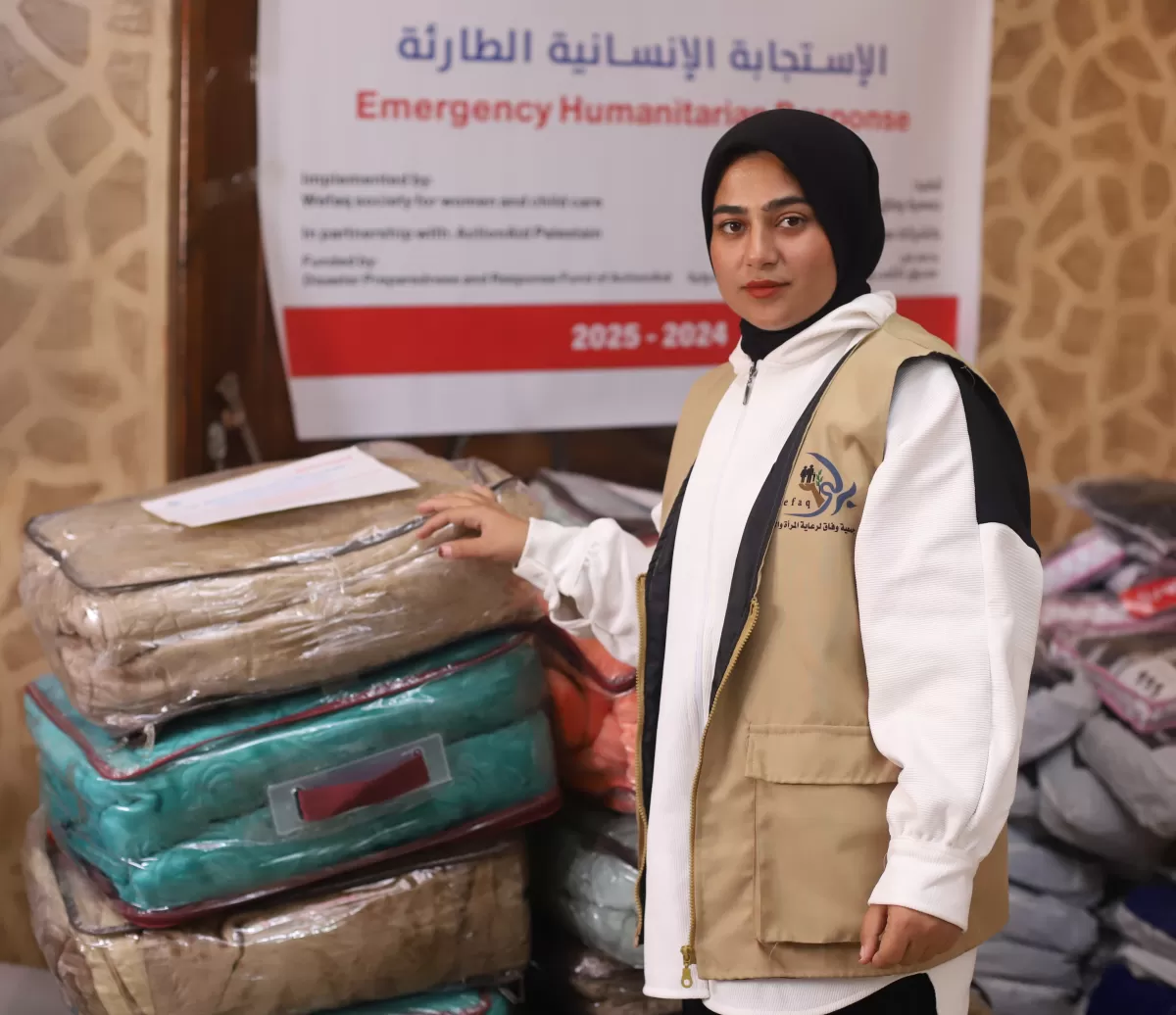
Salam, a volunteer with Wefaq organisation in Gaza and partner of DEC charity ActionAid, Feb 2025. Image: Wattan Media Network/ActionAid
How DEC charities are providing aid as the crisis evolves
Throughout the crisis DEC charities have been working hard to cope with limited deliveries of aid. Everywhere is at risk of famine, and the devastating humanitarian crisis continues to deteriorate.
As they have done throughout the crisis, DEC charities and their local partners are working tirelessly to meet some basic needs in the ways they are still able to.
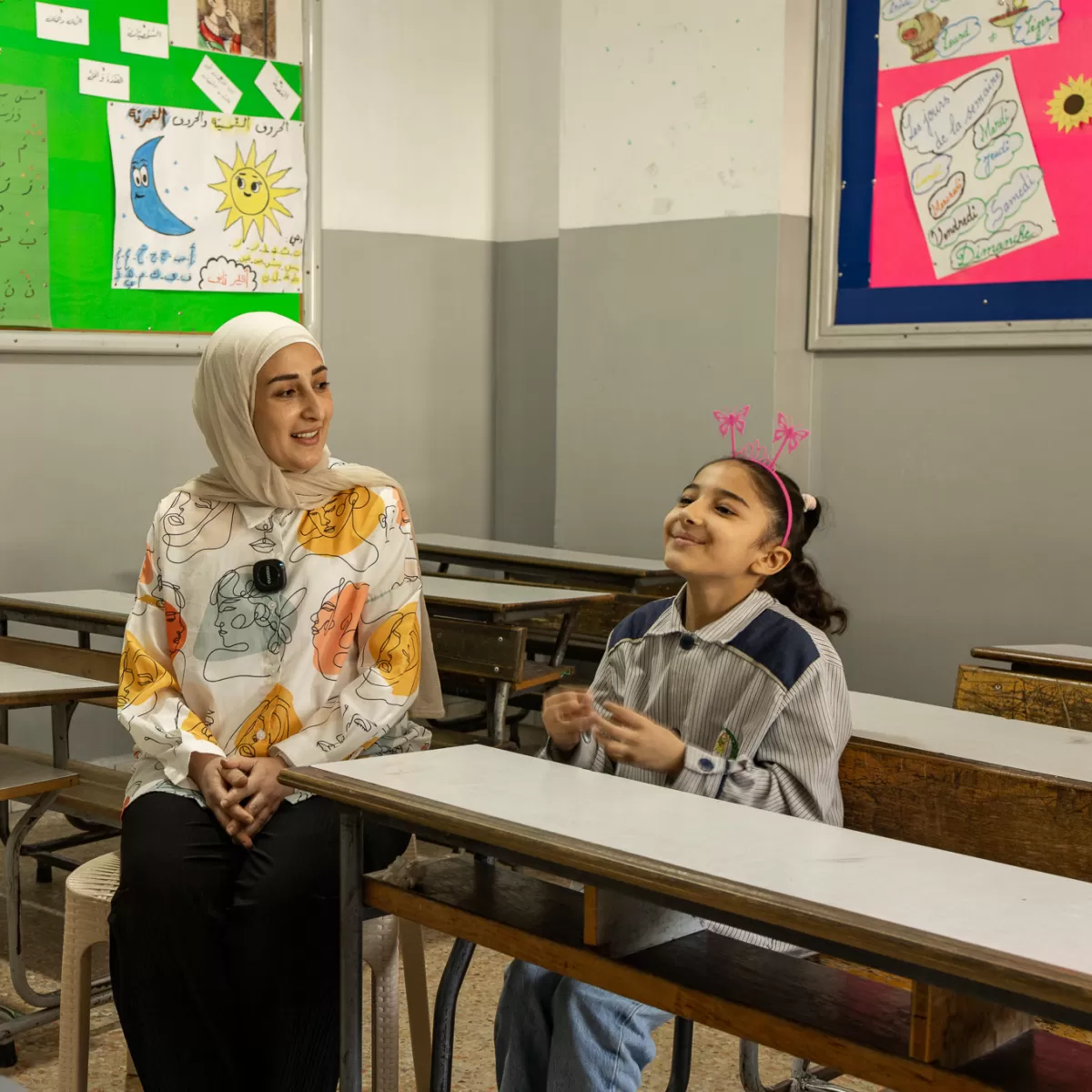
Maryam sits with her seven year old daughter Zahraa after taking part in psychological support activities, May 2025. Image: Carmen Yahchouchi / DEC / Fairpicture
Local expertise helps meet urgent needs in Lebanon
The ceasefire agreement in Lebanon at the end of last year meant some of the hundreds of thousands of people displaced by conflict could return to their communities and start to rebuild their lives.
Find out more about how DEC charities have been working with local partners in Lebanon, to provide families with essential support to meet their needs.
Appeal News
The latest news from the situation in the Middle East.
Jump to
UN warns fuel crisis is Gaza has reached 'critical point'
9 July 2025
In a statement released this week, the UN has warned:
'The fuel crisis in Gaza has reached a critical point. What little fuel remains is already being used to power the most essential operations but those supplies are running out fast'.
The international branch of DEC member charity Red Cross, the ICRC, has issued a similar warning, saying earlier this week:
'The few medical facilities that continue to function, including the Red Cross Field Hospital, are running dangerously low on essential supplies, including fuel'.
The UN statement said the fuel powering vital functions in Gaza, including water desalination stations and hospitals’ intensive care units, is running out quickly, with 'virtually no additional accessible stocks left'.
Over £46 million raised so far but the needs are huge
19 June 2025
Over £46 million has been raised for the DEC Middle East Humanitarian Appeal, but the humanitarian needs are huge, with the whole of Gaza at risk of famine.
With extremely limited supplies entering Gaza, DEC charities and their local partners are working tirelessly to meet some basic needs in the ways they are still able to.
During the first 6 months of the DEC funded response, between October 2024 and April 2025:
- More than 440 000 ready to eat meals were distributed
- Over 390 000 people benefitted from improved access to drinking water
- Over 109 000 people gained improved access to healthcare, including the distribution of medicine and provision of primary healthcare services
- More than 22 000 people were reached with cash assistance
Much of this work was made possible by the increase in aid delivered during the ceasefire agreement earlier this year.
Gaza update: Can DEC charities still provide aid?
6 June 2025
The extraordinary challenges around aid delivery in Gaza are having a devastating impact on the work of DEC member charities and their local partners.
Right now, even in these dire circumstances, they are still finding ways to provide support.
Each day brings new and unexpected challenges, and they are constantly adapting their operations to deliver whatever aid they can - as they have done throughout the crisis.
Find out more here.
DEC CEO Saleh Saeed visits food distribution in Lebanon
16 May 2025
Recently DEC CEO Saleh Saeed travelled to Lebanon, visiting DEC funded projects supporting people affected by the conflict.
Islamic Relief Lebanon are working to support people in the South of the country, where many families returned to their communities to find their homes destroyed.
Huge numbers of people remain displaced and ongoing airstrikes continue to cause destruction and displacement.
Food distributions provide essential items such as chickpeas, cooking oil and flour to families in need during Phase 2 of the DEC response.
IPC: Gaza faces critical risk of famine
12 May 2025
BBC News have reported The Integrated Food Security Phase Classification (IPC) have today released a report analysing food security in Gaza from April 1 - May 10 2025.
In the report, the IPC stated that 1.95 million people, or 93% of the population of Gaza, are living through high levels of acute food insecurity, including 244,000 experiencing the most severe levels.
Throughout this period, DEC charities and their local partners have continued to work tirelessly to support people in these unimaginably difficult conditions, as they have been doing throughout the crisis.
